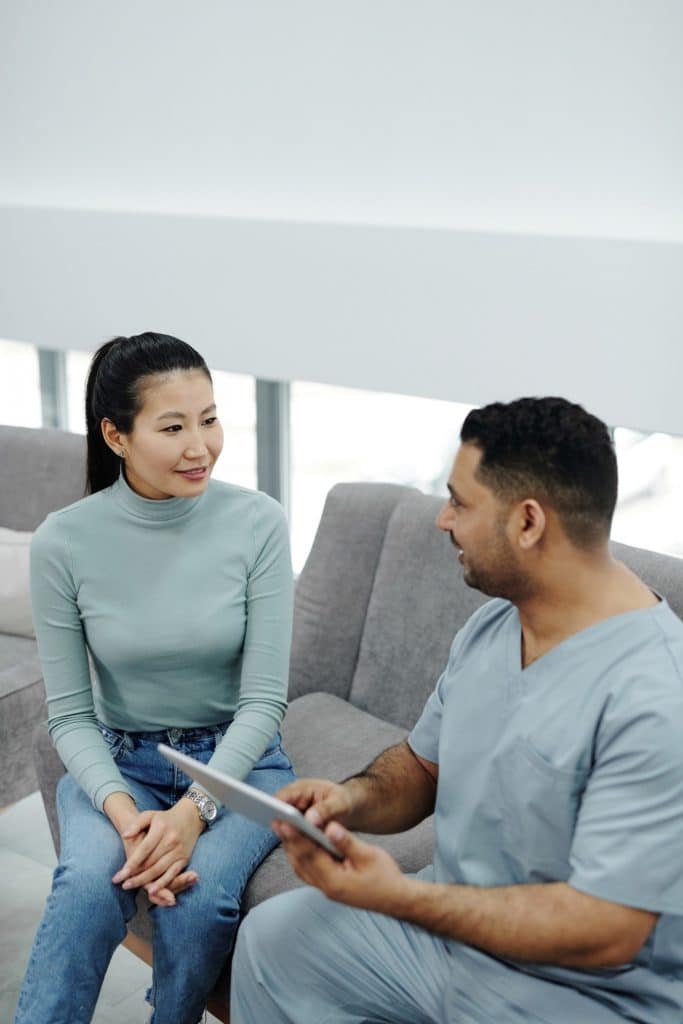Needles. An object that while small, holds a different sized significance to each person. In an era where the word “vaccination” carries extra weight – for some, it’s a mere topic of conversation, and to others, it’s a very real fear. Needle phobia is a common obstacle for many to overcome.
As global society’s dreams of returning to a post-pandemic normal primarily rests on people’s willingness to vaccinate, people with a fear of needles understandably need reassurance.
So, here’s how you can deal with shots or vaccinations if you’re terrified of needles.
Trypanophobia – Fear of Needles
A University of Michigan study revealed that 16% of adults from various countries avoided their annual flu shot due to a fear of needles, while 20% avoided tetanus shots.
Trypanophobia, or needle phobia, is the extreme fear of medical procedures involving injections or hypodermic needles. While more common in children, it may remain throughout adulthood, causing extreme distress.
Despite the fact that many people today struggle to deal with shots – it wasn’t officially recognized as a phobia until 1994 – in the Diagnostic and Statistical Manual (DSM). While specific to medical needles – it is usually called needle phobia by the general public.
Symptoms of Needle Phobia
People who suffer from a fear of needles may dread medical procedures, especially those involving needles. It isn’t uncommon for people to experience high blood pressure and an elevated heart rate within hours and even days leading up to the procedure. On the other hand, people may experience a decrease in blood pressure and faint on the day of the procedure. Today, this anxiety may be heightened by the intensity of current global affairs.
Other common symptoms of needle phobia:
- Anxiety
- Dizziness
- Insomnia
- Nausea
- Rapid breathing
- Racing heartbeat
- Sweating
- Trembling
Some people have been known to avoid medical treatment due to their phobia, with panic attacks also being possible in severe cases.

How to Overcome a Fear of Needles and Deal with Shots
Coping with a phobia like this one could be compared to finding a needle in a haystack – since each subsequent encounter with a needle is another obstacle to tackle. However, dealing with your needle phobia is entirely possible. Here are some ways to overcome your fear in a healthy, productive manner:
Therapy
It goes without saying – especially in the so-called “woke” era – that counseling can help people overcome a multitude of fears and trauma. Trypanophobia is no different. From cognitive behavioral therapy (CBT), which explores the root cause of the fear, to exposure therapy, which exposes people to needles in order to help them overcome their phobia.
You can even try out the latter technique at home. You can practice exposure therapy by looking at pictures of needles or watching videos of injections being given. People can eventually move on to practicing the experience of getting a shot using an object with a dull point – for instance, a pen or a straightened-out paper clip.
Medication
Alternatively, doctors can prescribe medication to manage the anxiety attached to a fear of getting shots or vaccinations. This would likely be something to qualm the nerves on the day of or the days leading up to a medical procedure. Since diagnosing a phobia is not an easy task – you would more than likely be prescribed something for anxiety.
Self-Help
Self-help strategies offer a more natural approach to overcoming your fear. Common relaxation techniques could help you combat the anxiety that comes with needle phobia. Trying something like deep breathing and meditation – which are proven to help combat anxiety. While visualization and mindfulness practices may also be helpful.
Seek a Helping Hand for Your Needle Phobia
At the end of the day, health professionals themselves play a significant role in reducing needle phobia. Having someone to calm and encourage you may help you through the experience. Don’t be ashamed to be open with staff about your fear of needles and being scared of shots. No health professional will judge you for feeling anxious about your medical procedure.
Some people are so fearful that they’re at risk of fainting, making it extremely important to communicate your fear of needles with the medical staff. If the doctors and nurses are aware of your fear they can do what they do best – mitigate any issues that arise from it, as well as guide you through your distress. Remember that It is their responsibility to foster a “safe-space” atmosphere every day so that patients feel more comfortable during any procedure.
Trypanophobia is a very serious phobic condition that deserves to be addressed with concern. Especially if your phobia may prevent you from seeking out medical help or undergoing common procedures. With the proper treatment, it is possible to overcome your needle phobia and free yourself from fear.











